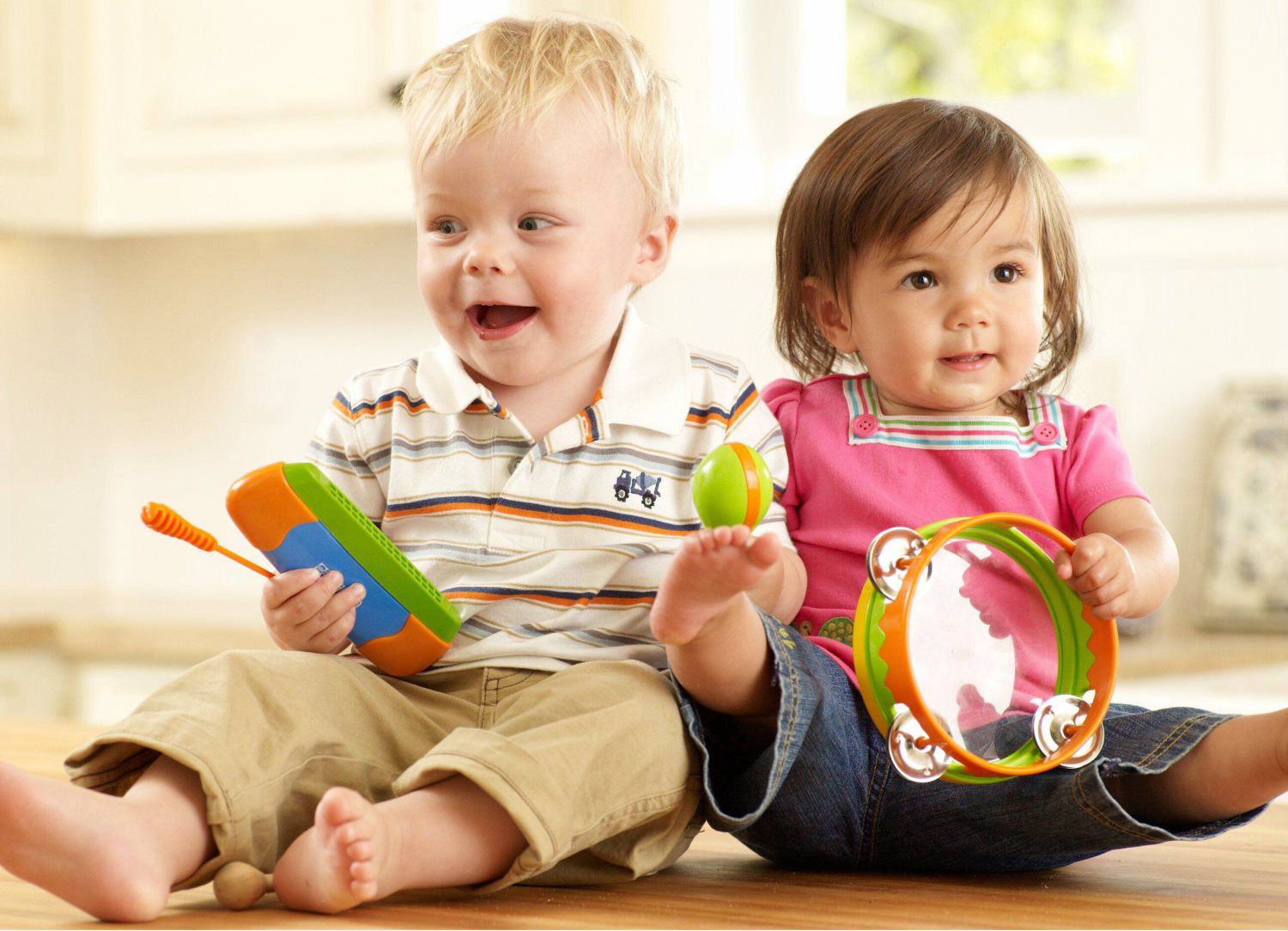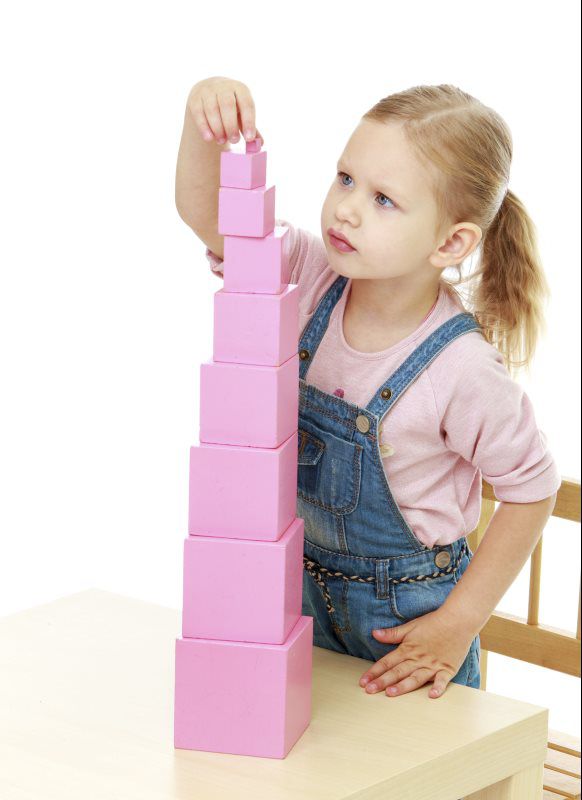Faq's
Why Choose Montessori Education?
Why Choose Montessori Education?
Children learn by exploring and discovering concepts with "hands-on" manipulative equipment.
• Individualized learning allows students to progress at their own pace.
• Logical and creative thinking are developed and problem solving skills encouraged.
• Lessons in grace and courtesy teach respect for self and others and promote positive social interaction and development.
• A non-competitive environment encourages children to learn to work and achieve intrinsic rewards rather than for external reinforcement or to please others.
The Montessori Method develops the whole personality of the child, not merely his intellectual faculties but also his powers of deliberation, initiative and independent choice, with their emotional complements. By living as a free member of a real social community, the child is trained in those fundamental social qualities which form the basis of good citizenship.
How is a Montessori Preschool different from other preschools?
In most preschools the children are taught educational concepts in a group by a teacher. In a Montessori preschool the children learn concepts spontaneously as they work independently with the many materials in the environment.
Why is the three-year cycle important in Montessori?
To receive the full benefits of a Montessori education, a child who enrolls should remain in the program for 3 years or more. Each step of a child’s development and learning from the time he/she enters the Montessori classroom serves as a solid foundation for the next. The child who does not finish the program will never experience the same benefits, joy and satisfaction of having reached the end. The best analogy would be reading a book but never know what the last chapter is. If you never know how it ends, your experience won’t be the same. The Montessori program works in the same way. Therefore, the importance of the 3-year cycle is crucial in Montessori.
Is Montessori all about the academics?
No. The Montessori Method is more than an academic program. It is a whole approach to life, which is one of respect, compassion, and guidance in all areas of learning. It is designed to help children with the task of their inner construction as they grow from childhood to maturity. The Montessori Method develops the whole personality of the child, not merely his intellectual faculties. Children develop creativity, social skills, cooperation, initiative, independence, responsibility, self-esteem, self-discipline, problem solving, critical thinking, care and respect for others and for the world - all which lead to becoming fulfilled individuals and contributing positively to society.
Is Montessori for all children?
Yes, the Montessori Method is an international approach to learning with no distinctions of class, intelligence, socioeconomic and cultural levels.
Is Montessori expensive?
Montessori preschools have extensive materials, an encompassing environment, and trained staff. These elements can sometimes cause tuition in Montessori schools to be higher than other preschools. Elder Tree Montessori presently has tuition that is comparable to local daycares, and other Montessori preschools in the area. This is because we believe that all children should have the opportunities to benefit from a quality Montessori education, regardless of socioeconomic status. Our Orangeville location also accepts fee subsidy. Fee subsidies are available through Dufferin County for those who qualify.
Many educators believe it is wiser to invest in a child's preschool education than his college education. The child who enjoys learning and becomes self-directed at the critical preschool age will benefit throughout all his years of learning.
How do Montessori children adjust to public school?
Children with a solid Montessori education are generally motivated, self-disciplined, confident, and have a love of learning. As a result they are able to adjust easily to many new situations, including the public school system. Good habits that are acquired early in a child's life result in a lifelong pursuit of knowledge.
How do I learn more?
There are many excellent books written about the Montessori Method. The following are a few books that I personally recommend:
How to raise an amazing child the Montessori way - Tim Seldin
The Discovery of the Child – Maria Montessori
The Secret of Childhood – Maria Montessori
The Absorbent Mind – Maria Montessori
Montessori in the Classroom – Paula Polk Lillard
Montessori Today – Paula P Lillard
In addition to books, there are also many excellent websites about the Montessori Method:
General Program FAQ’s
Does the school provide snack and/or lunch?
Yes! A nutritious lunch, morning and afternoon snacks are provided in accordance to the Canada's Food Guide. Weekly menu plans will be posted in the main hallway on the 'parent info' board. Copies of our four week rotating menu plans are available to parents upon request.
My child suffers from a severe food allergy what is your school policy/protocol?
Elder Tree is a peanut/nut free environment. If your child suffers from a severe allergy such as peanut butter/nut allergies, please notify us when registering your child so that we may post appropriate posters and inform other parents. Also ensure that the appropriate medication is on hand to deal with such an occurrence for the first day of school.
How are birthdays celebrated in the Montessori Classroom?
The birthday child is invited to participate in the Montessori birthday walk. Children sing a traditional Montessori song as well as the popular birthday songs. The child’s personal ‘timeline’ will also be discussed. Parents are invited to share a nut-free snack with their child's classmates. Birthday celebrations are limited to circle time (at the end of the work period) and cannot exceed 1/2 hour in length. Parents are welcome to participate, be sure to coordinate dates and times with your child's teacher.
Do you require children to be toilet trained?
Students three years and older should be toilet trained. To be considered toilet trained children must demonstrate that they are able, on their own initiative, to go to the bathroom with little or no adult prompting or assistance.
It is preferred that all children in attendance be toilet trained before attending the Montessori program, however special consideration may be made if your child is under three years and maintains a regular toilet training routine at home that can be continued here. Our aim is to help children become independent in all aspects of their development, including managing their own basic needs. We are able and prepared to assist with an occasional accident and/or help a child get their clothing refastened. Teachers will also regularly remind children to remember to go the bathroom. However, chronic potty accidents detract from our ability to provide academic lessons to all of the children.
What about parental involvement?
If you choose to have your child attend Elder Tree Montessori, we encourage you to understand what "Montessori" is, and to educate yourself in the Montessori Method and philosophy. While not required, we encourage parent participation through observations, parent evenings, readings, etc. The more parents understand the classroom experience, the better able they are to follow through at home. When parental support is given, the child benefits even more because they have a consistent environment in which to grow and develop.
We also encourage you to support your child’s development at home by allowing them to do things for themselves – even if it takes longer or may make a mess. Be sure to set the ground rules (even demonstrating how a task can be done safely and carefully), observe while your child is performing the task, and ensure that they help to tidy up any mess. It is easier to do it yourself, but your child actually enjoys the process. They are learning valuable fine and gross motor skills in a satisfying manner – your child is gaining independence.
We encourage parents to take advantage of as many opportunities as possible to help develop your child’s language skills at home by exposing them to rich vocabulary, songs, poetry, rhymes, and books.
What is your (Montessori) approach to discipline?
Our goal is to have children internalize good behaviour, not just respond to an adult. To do this we are focused on respect, responsibility and resourcefulness. But children do not come to us with all of these qualities in place. When a child behaves in a manner that is unacceptable he is held accountable with a logical consequence, one that is related to the misbehaviour. For example, if a child chooses a particular material and is using it incorrectly, perhaps even damaging it, he will at first be redirected to use it appropriately. If this does not remedy the problem the child will be told to put the material away and may not be able to use it again for several days. If a child is consistently running in the class endangering himself and others, he might be asked to stay with the teacher or to stay seated at a table. But this problem was related to movement, thus the consequence is the restriction of movement.
Are there progress reports for my child?
Yes. Provided that your child has been in attendance for a minimum of three months for each report. There will be two report cards each year for students in attendance over the age of thirty months (based on the Casa program). The first report card will be presented in January, parent/teacher interviews will be offered at this time. The second report card will be presented during the last week of school. Interviews are conducted once per year, however, parents are welcome to discuss their child’s progress or request a conference any time during the year.

